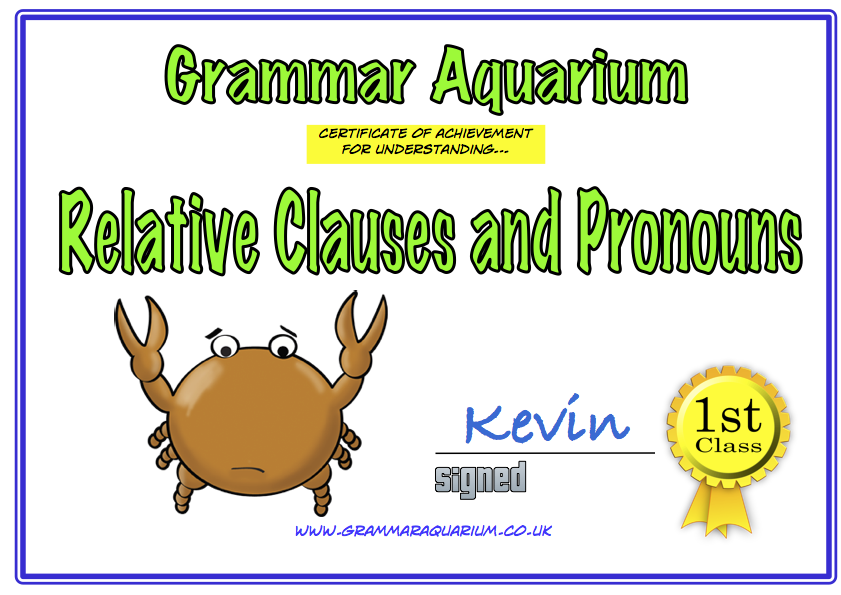thepunctuationshow.com
Raising attainment through entertainment and learning through laughter.

Relative Clauses and Pronouns

A relative clause is a subordinate clause. It refers back to a noun or noun phrase.
It usually does this by using a relative pronoun (who, which or that).
A relative clause can be used with the subject of a sentence.
For example,
The lady, who makes lots of noise, should be quiet.
The lady is the subject of the sentence and the relative pronoun ‘who’ refers to her.


A relative clause can be used with an object of a sentence.
For example,
The school banned mobile phones that can access the internet.
Phones are an object of this sentence, but the pronoun ‘that’ refers to the phones.
Remember, relative pronouns can sometimes be left out of the relative clause, but they are still understood.
For example, the horse I rode ran too fast.
‘that’ has been left out.

Your Turn…

Got them all right? Click the button for your certificate.
No cheating, or Finley will eat you!
Important Information
Company Information
The Punctuation Show and everything on this site is owned by PODCASTREVISION LTD
Director: Barrie McDermid
Company number - 06990962
VAT Reg - 978 170187
Public Liability Insurance cover for £1,000,000
The mission of The Punctuation Show is to raise attainment through entertainment and encourage pupils to learn through laughter. We aim to please in everything we do and will go out of our way to provide outstanding customer service.
Connect with The Punctuation Show on Social Media
Connect with us on the platform of your choice to get updates of what The Punctuation Show is doing and for offers, resources and competitions.
Mailing list:
By signing up to our newsletter, you get free resources in your inbox regularly to save your precious time. What's not to like?
